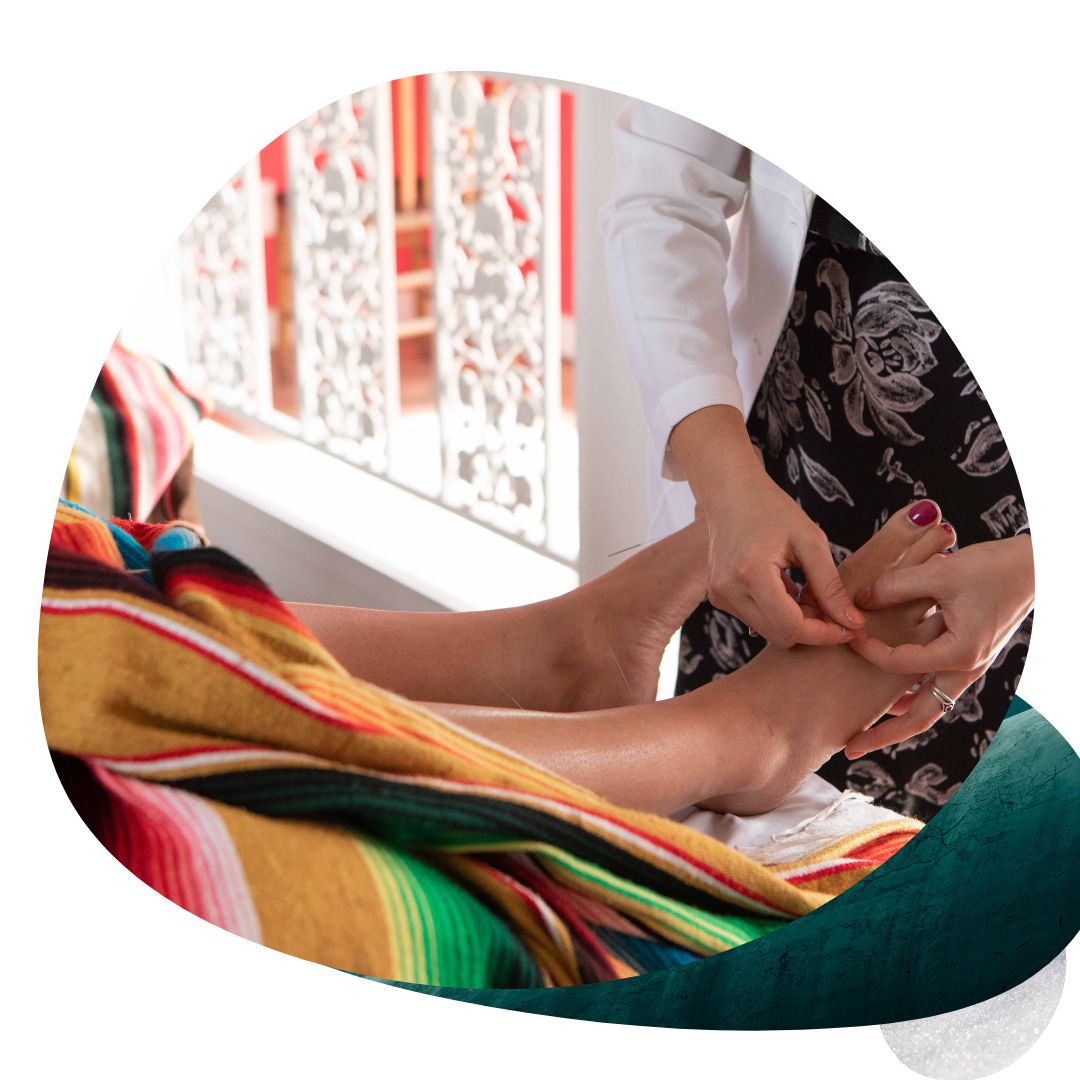Acupuncture (the short version):
|
Acupuncture uses small needles to stimulate specific points in the body. There's so much more to it, and I'd love to talk your ear off about those one day. You're a busy person, so here are some quick basics.
Acupuncture is one of the most well known modalities used in Traditional Chinese Medicine (TCM). TCM has more than 2,000 years of history and boasts proven, positive effects on both the body and mind. Acupuncture promotes homeostasis and self-healing. In other words, acupuncture stimulates the body to heal itself. Acupuncture influences:
I create individualized treatment plans for each appointment, layering in bodywork, acupuncture and micro-current therapy as needed. The price of treatment never changes, I just do what is best for you each visit. Acupuncture is incredibly safe - the most common unwanted side effect is a small bruise at the site of insertion (uncommon, though) and maybe wanting to take a long nap after treatment. Most patients report feeling a deep relaxation, and benefits that extend even to concerns they did not come in for initially (better sleep for example). I tell all my patients this, so I'll also tell you: every treatment is your treatment, meaning you are in control of what happens to your body. Consent and comfort are extremely important to me and I want them to be the foundation of our practitioner / client relationship. If something doesn't feel right to you or feels too intense, let me know. That doesn't often happen. Most patients take a small nap on the table. Acupuncture can help with many specific conditions but in general patients report:
A few things key things distinguish acupuncture from more mainstream medicine:
Of course, there is more. My goal is to get you feeling more at home in your body and mind, and living the life you want to be. What do you want to be doing and what are your limitations? Let's chat about those and come up with a game plan. |
Conditions TreatedTraditional Chinese Medicine can manage and treat many health concerns, from chronic to acute including:
*For more information on treated conditions and associated research, please visit the NCCAOM's resource center. |
Here are my three most frequently-asked questions:
Q: Will it hurt?
A: The needles I use are much smaller than your average needle. In fact, about 20 acupuncture needles fit inside the average hypodermic needle (used to draw blood)! Most patients do not even feel the needles go in. You may feel a tingling sensation, warmness, or heaviness and a dull ache where needles are inserted initially. Those are normal responses and signifies a connection with the rest of your body. I also have needle-free options for those with extreme aversion to needle-therapy.
Q: How do you know where to place the needles?
A: A lot of school (4 years!) and time spent learning about the anatomy and physiology of human body. Acupuncture points are located in areas with higher concentrations of superficial nerves, blood vessels, neuromuscular attachments (where vessels and nerves penetrate muscle fibers).
Q: How long will it take to see results & how often do I need to come?
A: Like everything tailored towards individuals... it depends! Everyone is different and treatment plans are made on a case by case basis. For a treatment plan, please schedule a 15-minute consultation with me.
Q: Will it hurt?
A: The needles I use are much smaller than your average needle. In fact, about 20 acupuncture needles fit inside the average hypodermic needle (used to draw blood)! Most patients do not even feel the needles go in. You may feel a tingling sensation, warmness, or heaviness and a dull ache where needles are inserted initially. Those are normal responses and signifies a connection with the rest of your body. I also have needle-free options for those with extreme aversion to needle-therapy.
Q: How do you know where to place the needles?
A: A lot of school (4 years!) and time spent learning about the anatomy and physiology of human body. Acupuncture points are located in areas with higher concentrations of superficial nerves, blood vessels, neuromuscular attachments (where vessels and nerves penetrate muscle fibers).
Q: How long will it take to see results & how often do I need to come?
A: Like everything tailored towards individuals... it depends! Everyone is different and treatment plans are made on a case by case basis. For a treatment plan, please schedule a 15-minute consultation with me.
Don't take my word for it, ask Katie:
"Amazing experience! I have a needle phobia and Nicole was so understanding and patient with me, I felt so supported throughout the process from the first contact to the actual appointment! I highly highly HIGHLY recommend her to anyone, but especially people who need compassionate support."

